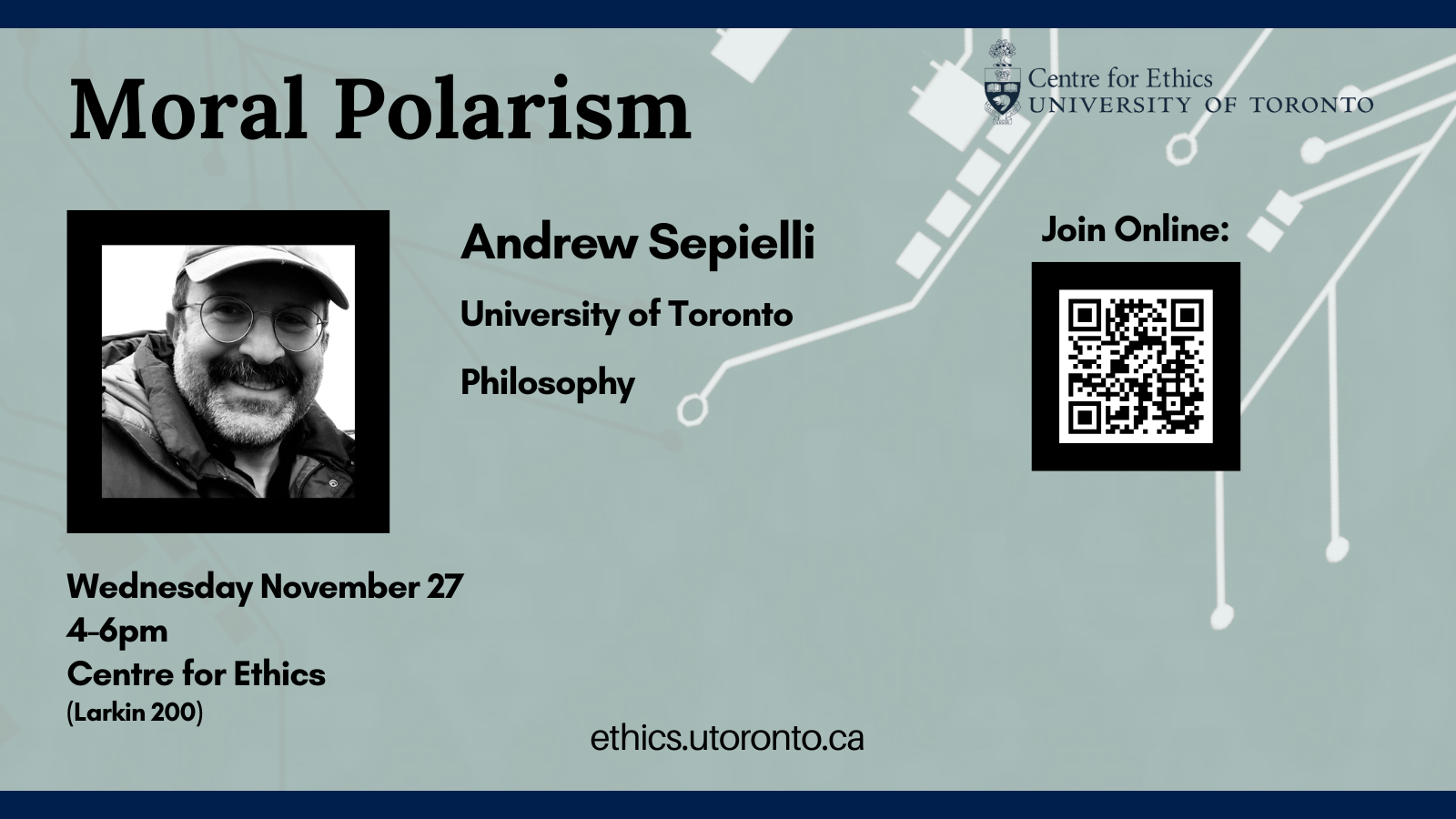
► To stay informed about other upcoming events at the Centre for Ethics, opportunities, and more, please sign up for our newsletter.
Moral Polarism
This paper articulates and defends a principle that I call “moral polarism”, according to which, roughly, only those considerations that bear on the quality of agency or on the goodness or badness of what befalls a moral patient are relevant to the evaluation of what the agent does vis a vis the patient. The agent(s) and the patient(s) are, then, the two “poles” to which the name refers. Put simply, if we imagine an action as a flight from agent to patient, only the takeoff and the landing matter; everything in between is, in a certain respect, morally irrelevant. Polarism is not much of a guide to action, nor is it directly and obviously opposed to any of the most well-known principles discussed by moral philosophers. But it’s my contention that once we get deep into debates concerning some of these principles, polarism “cuts” quite a bit of “ice”. Specifically, I will claim that it functions as a powerful theoretical tool within debates about the relevance of doing vs. allowing harm, about harming as a means vs. harming as a side effect, and about how to address past wrongdoing.”
► This event is hybrid. Join in person at the Centre for Ethics (Larkin Building room 200) or online here.

Andrew Sepielli
Philosophy
University of Toronto
Wed, Nov 27, 2024
04:00 PM - 06:00 PM
Centre for Ethics, University of Toronto
200 Larkin
